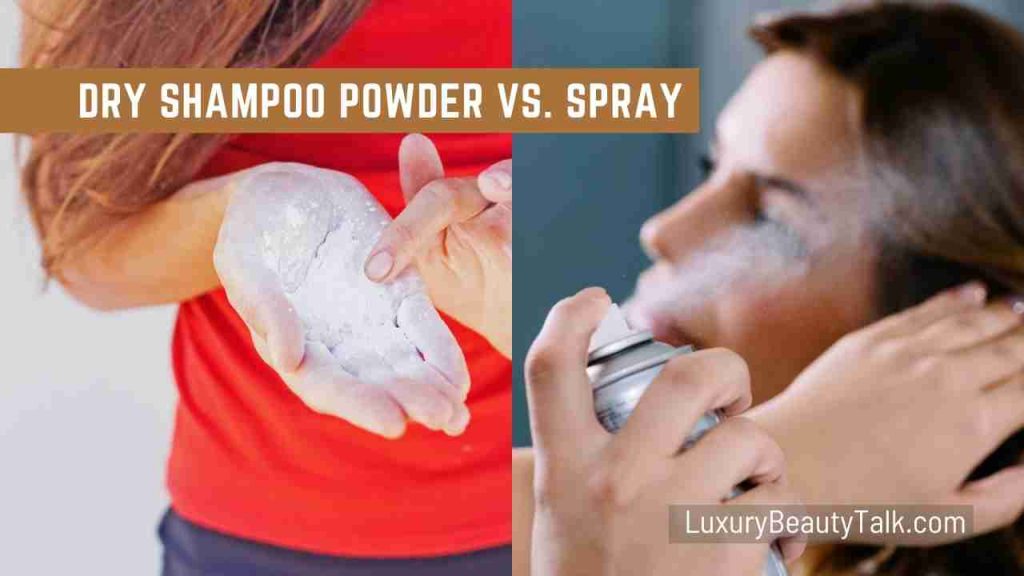Many women will do anything to remove the daily hair wash from their daily routine. One reason for this is the time it takes. To wash your hair and blow it out after washing, you may spend about 45 minutes or more. It doesn’t stop there. You will also consume a lot of water while washing your hair. We believe that every hair wash takes at least 2 liters of water.
So, if you wash your hair every day in a year, you will use about 730 liters (2 liters x 365 days) of water on only your hair. What if you’re not the only woman in your household? Dry shampoo is the solution to the problem. The product will absorb the oil or grease in your hair, and it will also cloak dirt and neutralize odors. It takes only 5 minutes to apply it to your hair instead of washing your hair for more than 45 minutes.
It also saves you a lot of water. Dry shampoo does not require water. So, you can alternate it with your hair wash. Some days, you’ll wash your hair, and other days, you’ll skip washing and apply dry shampoo. Many women who now use dry shampoo wish they had known about the product much earlier.
What’re the differences between dry shampoo powder and spray?
While dry shampoo spray and powder do the same job, they do it differently and they are different in the following ways.
1. Package
Powder usually comes in a dry shampoo bottle. At the top of the bottle is a cover with numerous holes. The powder will pass through the holes when you are applying it to your oily hair. Dry shampoo spray is in aerosol form and it is always in a spray can. You will have to spray it on the roots of your hair. That is why it is applied in sections.
2. Ingredients
The ingredients in both products are slightly different, even though they also share certain ingredients in common. Dry shampoo powder contains Arrowroot and some essential oil extracts, while the spray version contains isobutane, propane, and methanol. These three compounds make dry shampoo spray flammable.
3. Flammability
As explained above, dry shampoo spray contains methanol, propane, and isobutane, but the powder version does not contain any of the three. This is why powder isn’t flammable, but its spray version is highly flammable. Hence, you should never spray dry shampoo aerosol near a naked fire or near someone who’s smoking.
4. Availability of residue
Dry shampoo spray leaves no residue when applied to oily hair, but powder usually leaves white residue. You can massage the powder into your scalp to remove the residue.
5. Quantity of usage
Oily hair requires more spray than powder. After testing both forms of dry shampoo, we realized that the quantity of powder we purchased took about 5 months to finish. The same quantity of spray got exhausted in a little over 30 days.
6. Application
To apply dry shampoo spray, you have to hold it upright at about 6 – 8 inches away from your head before you spray it on your hair. For powder, you have to bring it closer to your hair and turn the bottle upside down to make the powder come out of its perforated cover.
Is dry shampoo Spray better than powder?
No. Neither of them is better than the other. They both have their pros and cons. Dry shampoo spray is easier to use and it does not leave white residue. However, it has two downsides. It is highly flammable and you need to apply a lot of it to get the job done.
Dry shampoo powder is a little more difficult to apply, and it usually leaves white residue. The tradeoff is its cost-effectiveness. A pinch of it is enough to get great oil absorption results. Also, it does not contain inflammable content, so it is not flammable.
We can’t say one type of dry shampoo is clearly better than the other. We don’t want to mislead our readers. Rather, we will leave readers to pick the one that suits each of them. In addition, it might be a better idea to use powder and spray at different times before choosing the one that you prefer. Yes, it is a matter of personal preference.
Can you wet your hair after using dry shampoo?
No, you should not wet your hair after using either dry shampoo spray or powder. It will reduce the performance of the product. Why would you even want to wet your hair after applying dry shampoo? After all, you chose dry shampoo because you don’t want to wash your hair.
Even if your hair is wet, you need to blow it out before you can apply dry shampoo to it. If you have sweaty hair, dry shampoo powder will do a better job than spray. This is because the spray can only absorb oil and grease, while powder can absorb sweat in addition to oil and grease.
Does dry shampoo powder cost more than spray?
No. Dry shampoo powder is not costlier than the spray, and the reverse is not true either. Virtually all the brands of dry shampoo offer both powder and spray. They expect their customers to pick what they prefer.
 Final Words
Final Words
As far as we are concerned, you should not really bother about which one is better between dry shampoo powder and spray. Try both products before sticking with the one that suits you more. What should really matter to you is how effective they are.
